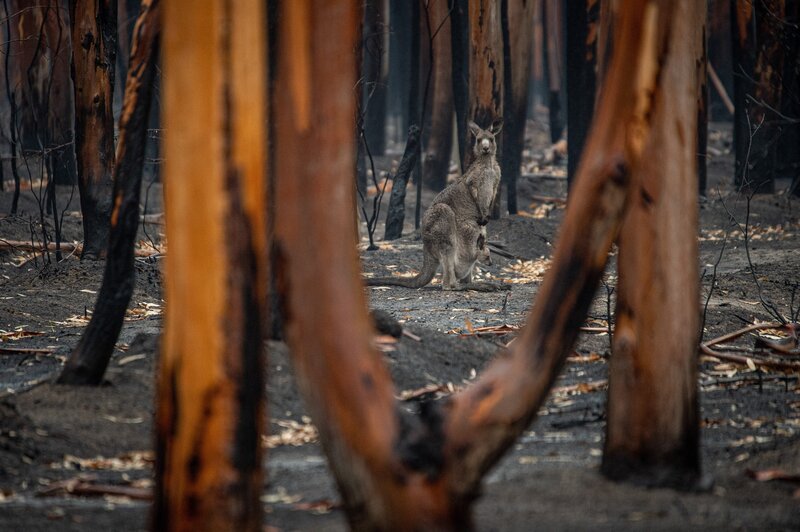Following nearly a decade of climate inaction, the new prime minister has promised to make climate change a priority for Australia and to make the country a “renewable energy superpower.”
—
After almost a decade of conservative leadership, Australians have voted in a government led by the Labor Party that pledged to end climate inaction in one of the world’s highest per capita carbon emitters.
“Together we can end the climate wars,” the new prime minister of Australia Anthony Albanese said during his victory speech on May 21. “Together we can take advantage of the opportunity for Australia to be a renewable energy superpower.”
Australia has been battling some of the worse effects of climate change, from the 2019-20 bushfires (also known as the Australian Black Summer) that burnt down 42 million acres and killed dozens of people and 3 billion animals, to the rapidly deterioration of the Great Barrier Reef – with scientists recently confirmed a sixth mass bleaching event. The latest Intergovernmental Panel on Climate Change reported that these extreme climate events are only going to get worse and more frequent.
Coupled with the lack of action taken by Scott Morrison’s administration, who only agreed late in 2021 – and just ahead of the UN climate summit COP26 – to a net zero emissions target in 2050 and openly said he has no plans to stop new coal projects, the people of Australia have been frustrated and made their needs clear at the polling stations.
The elections saw a number of Greens and teal independents – a group of new (mostly female) independents that mix green party beliefs with the Liberal party’s traditional blue, hence the teal – joining the parliament for the first time. The latter ran on a platform that seeks to cut emissions of up to 60% by 2030, which is more than twice of what was promised by the conservatives (26-28%) and Labor’s 43%.
Under the new administration, Albanese has promised to end Australia’s reputation as a climate outlier and will keep the pledge to reach emission net zero by 2050. The plan is to rapidly grow large-scale solar and wind energy generation and capacity, modernise the national energy grid and roll out solar banks and community batteries. There’ll be a push for greater uptake of election vehicles – which include tax deductions – while promising a nationwide network of charging stations. The mining of green minerals such as lithium will also be ramped up.
Yet despite the net-zero and other promising pledges, Albanese has fallen short of committing to the end of fossil fuels or coal mining, and has said they’ll approve new coal projects if they’re environmentally and economically viable. There are currently about 114 new coal and gas mining projects undergoing the approval process, according to Australia Institute’s Climate & Energy Program.
The new government would also not consider putting a price on carbon following the country’s disastrous history with a carbon tax, which could lead to major political fallout should it be reintroduced.
Based on the current Labor plan however, research institute Climate Analytics says it is not nearly ambitious enough to keep the global temperature increase under 1.5C, and in fact, is more consistent with a 2C rise trajectory.
EO’s Position: The world has already warmed around 1.1C since pre-industrial times, and we are still on track to exceed 1.5C of warming within the next two decades. Australia needs to phase out fossil fuels immediately. If the world at large continues to add more greenhouse gases to the atmosphere, record high heatwaves and wildfires will become even more frequent, threatening biodiversity and millions more lives in Australia and around the world.
You might also like: Is the Global Green Party Movement Here to Stay?


















